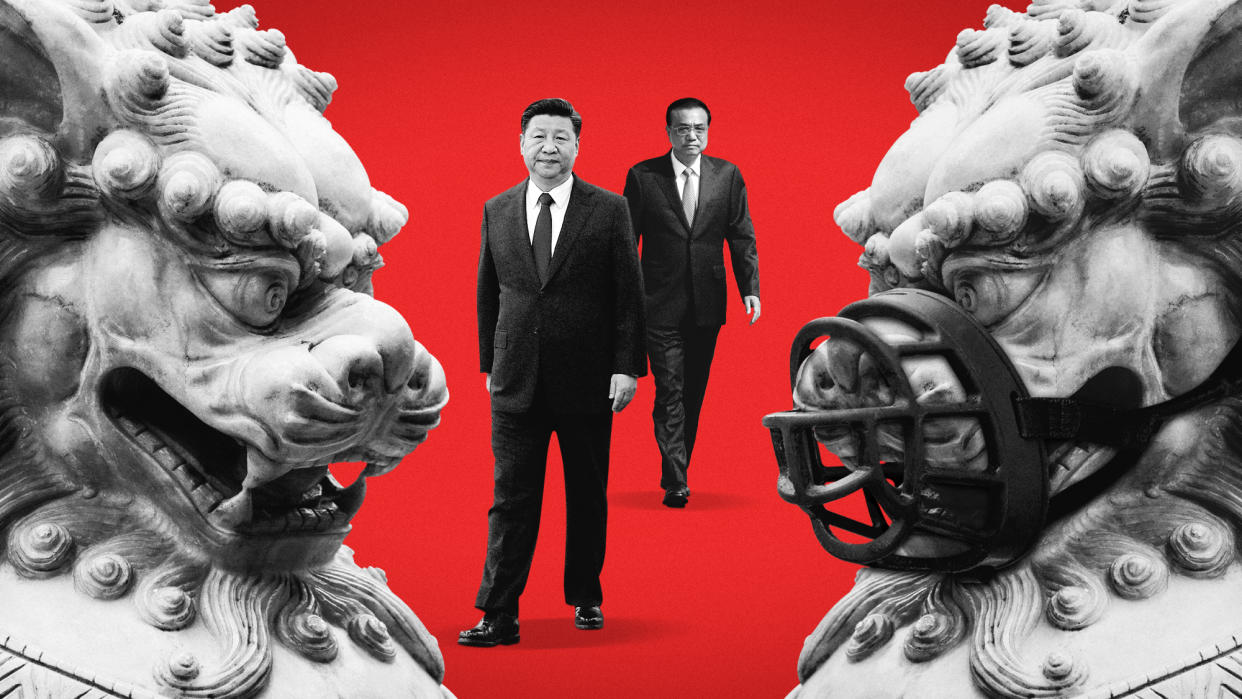Li Keqiang death: is China's reform era officially over?

- Oops!Something went wrong.Please try again later.
- Oops!Something went wrong.Please try again later.
A senior Chinese politician sidelined by President Xi Jinping has died of a heart attack at the age of 68.
As premier, Li Keqiang was "nominally China's No. 2 leader" and was in charge of the economy until late last year. He was "once seen as a reform-minded contender to the country’s top leadership role", said CNN.
Speculation that the "reform era" in China is coming to an end has been gathering pace for months and with the passing of Li, those voices are only becoming louder.
What did the papers say?
Li was the only member of the Politburo Standing Committee to have "openly advocated" for the continuation of former leader Deng Xiaoping's "open-door policy", which "ran counter to the instincts of Xi Jinping", Willy Lam, a senior fellow at the Jamestown Foundation think tank in the US, told CNN.
His death "means the loss of a prominent moderating voice within the senior levels of the Chinese Communist Party", Ian Chong, from the Carnegie China think tank, told the BBC, with "no one apparently being able to take over the mantle".
The consequences of this could be significant. The reform era was "characterised by political stability, ideological openness, and rapid economic growth," Carl Minzner, an expert on Chinese law and governance at Fordham University in New York, wrote in a 2015 paper.
The death of Mao Zedong in 1976 had "cleared the way for a new mix of economic ideas", wrote Yuan Yang for the Financial Times earlier this year, but now, she added, many in China are "heralding the end of the reform era".
Xi has turned away from reform led by the private sector, positioned to make China "more attractive to foreign investors", said The Diplomat, to a "more cautious and balanced approach to economic development, embodied in the 'common prosperity' campaign".
Dake Kang, a Beijing-based correspondent for The Associated Press, wrote on social media earlier this year that he tells the "stream of visitors returning to China" after Covid restrictions "that we've entered a new era – the post reform era".
But how certain any of this is has been called into question. Predictions about economic affairs in China are always tricky, because politics in China is an "opaque black box", wrote Keith B Richburg for The Washington Post, so "nobody knows for sure" what is going on there.
What next?
Some believe that Beijing is in a reasonably strong position. China's economists "skipped straight from Marx to the free market theories of von Mises without a Keynesian interlude", said Yang. But if Chinese leaders invest in social infrastructure and services such as "national healthcare, a robust education system and unemployment credits", an "even better age might beckon".
Indeed, the "challenges" the nation is facing "don't necessarily mean China has now entered a period of decline", said Axios. Its economy, though growing at a "less-rapid rate", "remains massive" and is "still deeply intertwined with the global economy".
Xi's restructuring of China's economy towards high-tech industries could "eventually pull the economy out of the doldrums", it added. That development could "further bolster" Beijing's position that its preferred model is a "viable alternative to liberal democratic capitalism", or the "doomsayers may be correct", and China may be headed for a "long, slow decline".
Meanwhile, the Chinese government is expected to "unleash fresh fiscal stimulus" to "shore up its economic recovery", said Reuters. It will draw on a "well-used playbook that relies heavily on debt and state spending but falls short on the deeper reforms" suggested by some.

